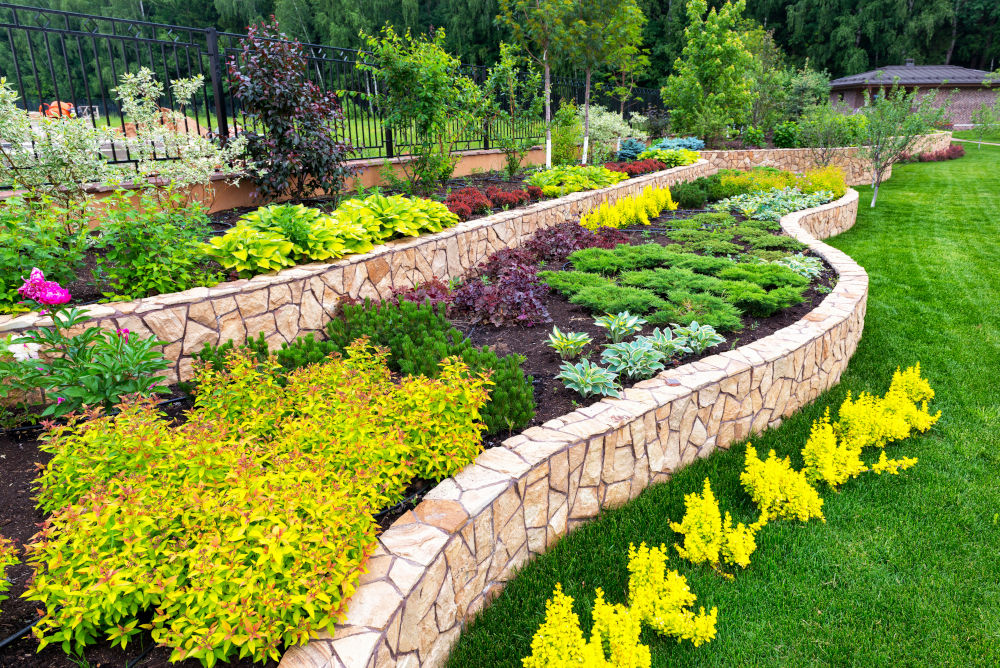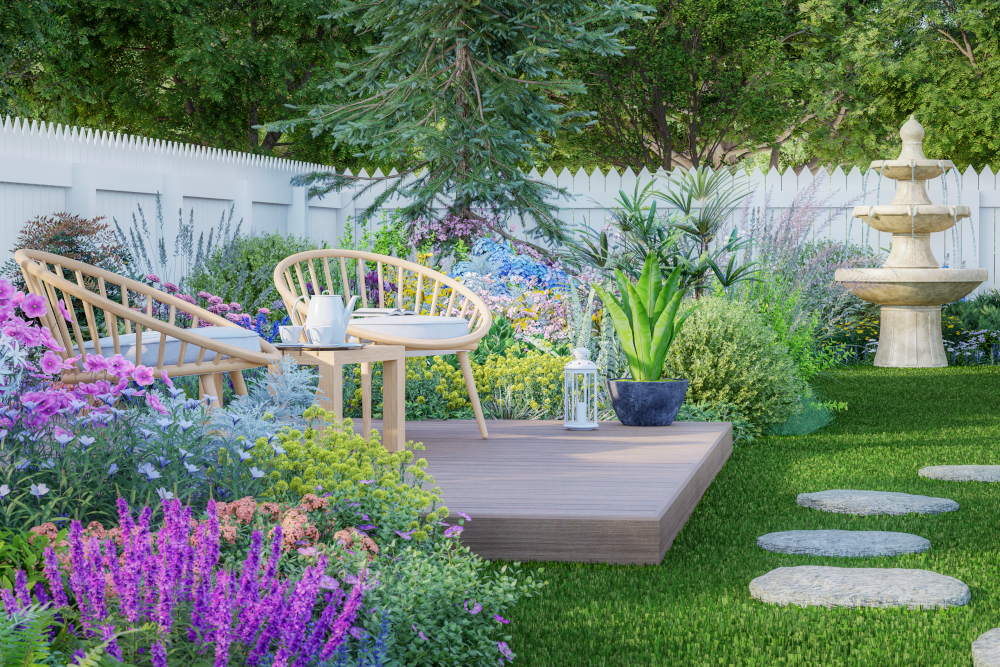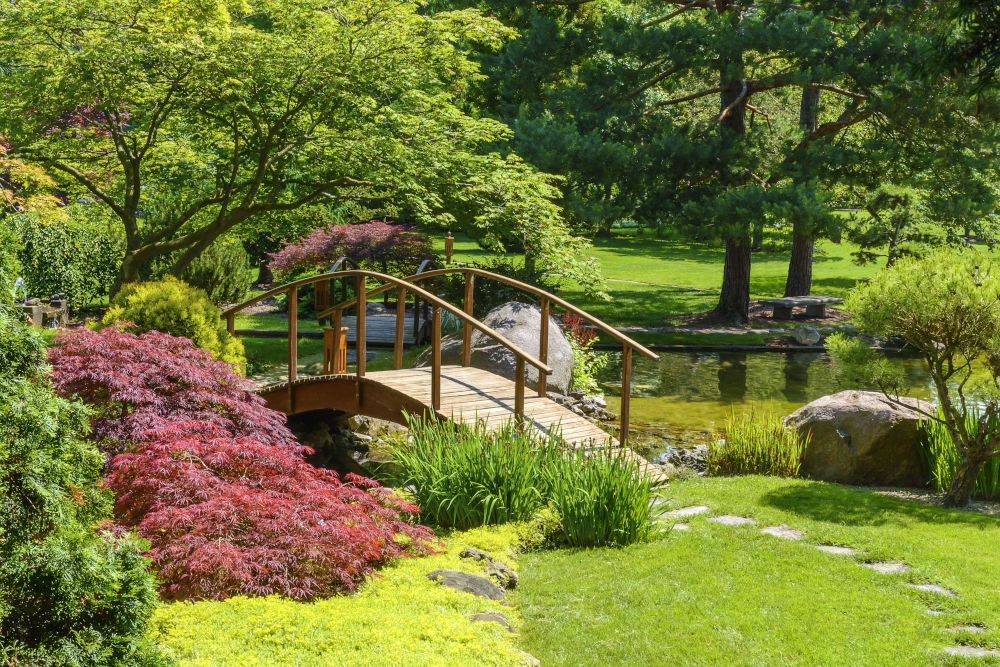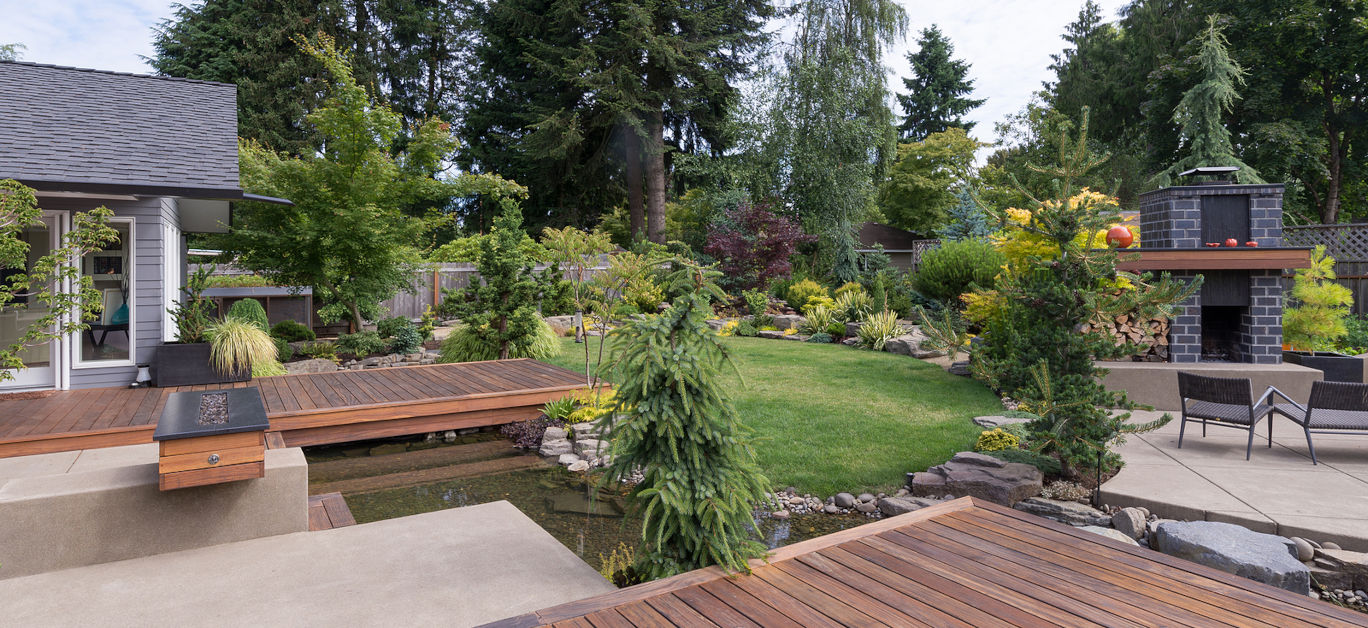Creating a garden that is both stylish and sustainable is a goal many of us share. The desire to relax in a beautiful outdoor space that also respects the environment is a growing trend. This guide aims to reveal the secrets behind blending luxury with sustainability in your garden, ensuring that style and eco-friendliness go hand in hand.
In recent years, the push towards sustainability has made its way into every aspect of our lives, including the way we design and enjoy our outdoor spaces. An eco-friendly garden not only provides a serene place for relaxation and entertainment but also contributes positively to the environment. From choosing the right materials to incorporating nature-friendly practices, this guide will walk you through the essential steps to create your own luxurious eco-friendly garden.
Choosing sustainable materials for your garden
The foundation of an eco-friendly garden lies in selecting sustainable materials. When planning your garden design, consider using materials that are renewable, recycled, or recyclable. For luxury outdoor furniture in the UK, opt for pieces made from FSC-certified wood, recycled metal, or rattan. These materials not only offer durability and style, but also ensure that your garden furniture has a minimal environmental impact.
In addition to furniture, think about the materials used for garden structures like pergolas. Pergolas not only add a touch of elegance to your garden but can also provide shade, reducing the need for artificial cooling in your outdoor spaces. When selecting a pergola, look for options made from sustainable wood or recycled materials to keep your garden green.

Integrating eco-friendly practices
Integrating eco-friendly practices into your garden is not just about the materials you choose but also how you maintain your space. Consider adopting organic gardening practices, which avoid the use of chemical pesticides and fertilisers. Instead, opt for natural alternatives that enrich your soil and protect your plants. Composting kitchen and garden waste is another excellent way to reduce waste and enhance your garden’s soil quality, promoting healthy plant growth.
Water conservation is also a crucial aspect of an eco-friendly garden. Implementing a rainwater harvesting system can provide you with a sustainable water source for watering your plants. Additionally, choosing drought-resistant plants and efficient watering methods, such as drip irrigation, can significantly reduce your garden’s water usage.
Creating a habitat for wildlife
A truly eco-friendly garden is one that welcomes and supports wildlife. By creating habitats for birds, bees, butterflies, and other beneficial creatures, you’re contributing to local biodiversity and helping to sustain the natural ecosystem. Planting native flowers, shrubs, and trees not only adds beauty to your garden, but also provides essential food and shelter for wildlife. Including features like bird baths, bee hotels, and butterfly feeders can further enhance your garden’s appeal to wildlife.
Remember, a garden that’s alive with the sounds of nature is not only more enjoyable, but also more balanced and healthy. Encouraging a variety of species to visit your garden helps to control pests naturally and promotes pollination, benefiting your entire garden ecosystem.
Embracing luxury with sustainability
When it comes to adding a touch of luxury to your eco-friendly garden, it’s all about choosing the right elements that align with sustainable principles. Woodlark Garden Luxury offers an exquisite range of luxury garden furniture that doesn’t compromise on environmental values. From stylish and sustainable pergolas to elegant outdoor seating, their collection ensures that you can enjoy luxury while staying true to your eco-friendly ethos.
Investing in high-quality, sustainable garden furniture and accessories not only elevates the look and feel of your outdoor space, but also ensures longevity, reducing the need for frequent replacements and thereby minimising waste. Embrace the beauty of sustainability by choosing pieces that bring both style and environmental responsibility to your garden.

Smart landscaping for energy efficiency
Smart landscaping is a crucial component in creating an eco-friendly garden that’s as functional as it is beautiful. Thoughtful placement of trees, shrubs, and garden structures can significantly enhance your garden’s energy efficiency. For instance, planting deciduous trees on the south and west sides of your garden can provide shade during the summer months, naturally reducing the temperature and the need for air conditioning inside nearby homes. In the winter, when these trees lose their leaves, they allow sunlight to pass through, providing natural warmth.
Incorporating ground cover plants and grasses can also reduce heat absorption, keeping the garden cooler and creating a more comfortable outdoor environment. Additionally, the use of permeable paving materials for pathways and patios ensures proper water drainage and helps recharge groundwater supplies, contributing to the overall health of your garden ecosystem.
The role of technology in eco-friendly gardens
Embracing technology can greatly enhance the sustainability of your garden. Innovations in solar-powered lighting and water features not only reduce electricity use, but also add a magical touch to your outdoor space during the evenings. Solar panels can be elegantly incorporated into garden designs, providing energy for lighting, water features, and even garden tools, further reducing your carbon footprint.
Smart irrigation systems are another technological marvel for the eco-friendly garden. These systems can be programmed to water your garden at the most efficient times, usually early in the morning or late in the evening, to minimise water loss due to evaporation. They can also adjust watering based on the weather, ensuring that your garden receives the right amount of water without waste.

The joy of growing your own
One of the most rewarding aspects of maintaining an eco-friendly garden is the ability to grow your own fruits, vegetables, and herbs. Not only does this reduce your carbon footprint by cutting down on the food miles associated with supermarket produce, but it also ensures that you have fresh, organic produce right at your doorstep. Creating a dedicated vegetable garden or incorporating edible plants into your existing garden design can be both practical and aesthetically pleasing.
Consider companion planting to naturally deter pests and diseases without the need for chemical interventions. This method involves planting certain plants together that benefit each other by repelling pests or enhancing growth. Additionally, rotating your crops each year can prevent soil depletion, ensuring your garden remains productive and healthy year after year.
The importance of personal wellbeing in garden design
Finally, an eco-friendly garden should not only be about sustainability, but also about personal wellbeing. Creating spaces within your garden for relaxation, meditation, and socialising can greatly enhance your quality of life. Incorporating elements such as comfortable seating areas, water features for tranquillity, and fragrant plants for aromatherapy can transform your garden into a haven for mental and physical wellbeing.
Designing your garden with wellbeing in mind encourages more time spent outdoors, connecting with nature, which is beneficial for both mental and physical health. It also provides a peaceful retreat from the hustle and bustle of daily life, offering a sanctuary where you can unwind, reflect, and rejuvenate.
Final thoughts
Achieving a luxurious, eco-friendly garden is about making thoughtful choices that respect the planet while indulging in the beauty and comfort of high-end design. It’s a testament to the fact that sustainability and style can indeed go hand in hand, creating outdoor spaces that are as environmentally responsible as they are visually appealing. Let’s continue to grow our gardens with both style and sustainability at their core, setting a standard for outdoor living that future generations can admire and emulate.






















